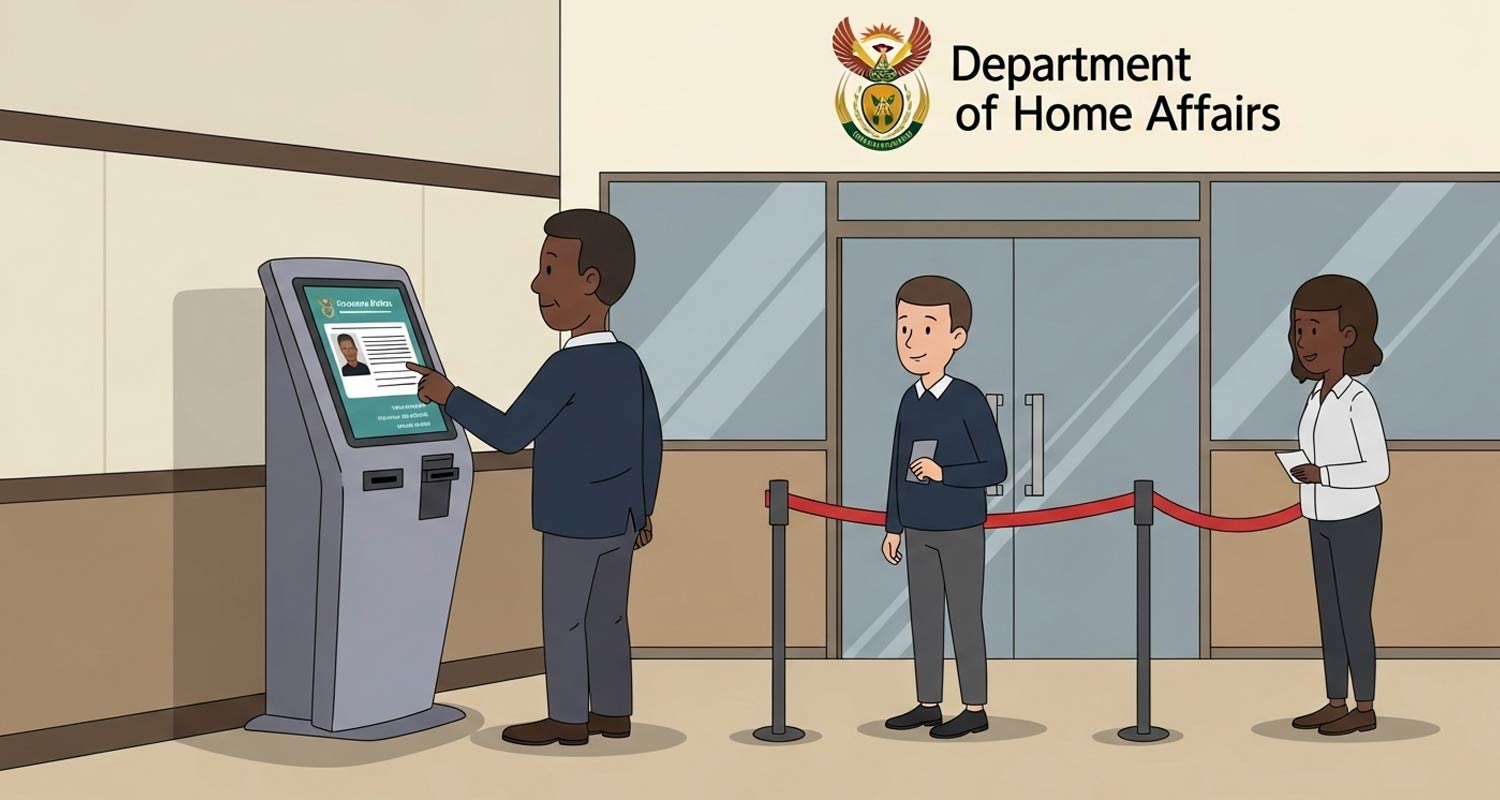Home affairs to roll out restaurant-style self-service kiosks
The South African Department of Home Affairs is set to introduce self-service kiosks, aiming to accelerate service delivery and significantly reduce wait times at its branches. This initiative mirrors trends in other sectors, promising increased efficiency.
According to Deputy Minister of Home Affairs , the department has already acquired 75 self-service terminals. These kiosks will allow citizens to access services such as reprinting birth, death, and marriage certificates without needing staff assistance.
told parliament that the AI-powered kiosks would expand the department’s digital footprint. Citizens will be able to apply for and collect smart ID cards and passports, as well as obtain reprints of essential certificates.
“The department has procured 75 of these virtual interactive self-service machines. The AI-powered kiosk will further expand our digital footprint and alleviate queues,”
—, Deputy Minister of Home Affairs
, senior manager at Altron Fintech, notes that self-service kiosks minimize queuing times and alleviate pressure on staff. Citing recent data, wait times in similar service sectors have decreased by as much as 40% following kiosk implementation (Statista, 2024).
“You reduce the amount of time people spend in your premises, especially when it comes to waiting. Self-service improves availability and makes the customer experience more unique, personalised and efficient,”
—, Senior Manager at Altron Fintech
Self-service kiosks have been successfully deployed in various sectors, including fast-food restaurants like McDonald’s and KFC. These terminals allow customers to place orders and make payments digitally, with cash payment options still available.
Banks, including neobanks like TymeBank, have also adopted self-service terminals. TymeBank uses kiosks in Pick n Pay, Boxer, and TFG-branded stores, enabling customers to open accounts, apply for loans, and replace cards.

Digital Identity and Future Plans
Home Affairs aims to expand its online services, requiring a secure national digital identity system. mentioned a partnership with the South African Reserve Bank to develop this system, which will use facial recognition to enhance security and reduce fraud.
“All human transactions are based on identity. To this end, we are working with the Reserve Bank to develop a robust digital identity system. This system will use facial recognition as the primary biometric modality thereby enhancing national security and reducing fraud risks,”
—
The Companies and Intellectual Property Commission has previously used self-service terminals and an upgraded online portal to streamline its services.
With these advancements, Home Affairs is poised to transform its service delivery model, offering citizens more efficient and accessible services.

Priya Shah
Priya Shah – Business Editor Priya Shah is a financial journalist and Business Editor at World Today News. She specializes in global markets, innovation, and economic trends, making complex business stories accessible to all readers. Priya’s reporting background spans top financial publications and startup hubs worldwide.







_1751880097.jpeg)




:max_bytes(150000):strip_icc()/PARENTS-family-eating-vacation-304ae478812345a88dfef34f4472c677.jpg)
:max_bytes(150000):strip_icc()/par-amazon-prime-day-deals-tout-recirc-7156326ccebe4f8da48f1017b65d6704.jpg)